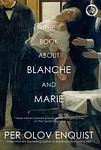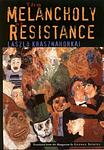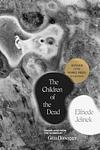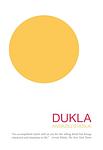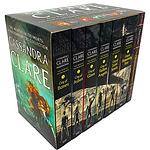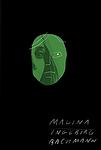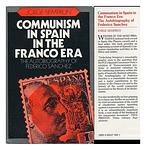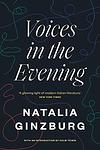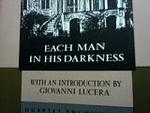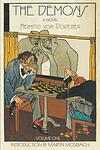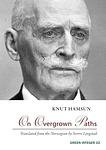Zeit Literaturkanon
This is one of the 286 lists we use to generate our main The Greatest Books list.
-
The Book about Blanche and Marie by Per Olov Enquist
The novel explores the relationship between two remarkable women: Blanche Wittman, a patient at the Salpêtrière hospital in Paris who became a renowned medium, and Marie Curie, a physicist and chemist who conducted pioneering research on radioactivity. The book delves into their friendship, their scientific collaborations, and the profound impact they had on each other's lives. It also explores the broader themes of scientific discovery, the nature of genius, and the role of women in a male-dominated society.
-
Celestial Harmonies by Peter Esterhazy
"Celestial Harmonies" is a historical novel that tells the story of the aristocratic Esterházy family, tracing their lineage from the late Middle Ages to the present day. The narrative is divided into two parts, with the first part featuring a series of vignettes about the family's ancestors, while the second part focuses on the experiences of the narrator's father under the Communist regime in Hungary. The novel is characterized by its intricate structure, complex themes, and lush, poetic language, offering a rich exploration of Hungarian history, family dynamics, and the human condition.
-
Measuring the World by Daniel Kehlmann
"Measuring the World" is a historical novel that reimagines the lives of two brilliant and driven men, German mathematician Carl Friedrich Gauss and German geographer Alexander von Humboldt. The narrative alternates between the two protagonists, exploring their individual quests to quantify and understand the world. Gauss, a child prodigy from a poor family, rises to become one of the greatest mathematicians in history, while Humboldt, a wealthy and ambitious explorer, embarks on a five-year journey across South America. Their paths converge in a humorous and touching manner, highlighting the contrast between their approaches to knowledge and discovery.
-
Paris Nocturne by Patrick Modiano
This novel unfolds as a mysterious and evocative narrative centered around a young man who becomes embroiled in a perplexing incident one night in Paris. After being hit by a car, he finds himself plunged into a deep investigation of his past, guided by cryptic clues and shadowy figures who drift in and out of his life. As he delves deeper, the boundaries between past and present blur, leading him on a haunting journey through the streets of Paris. The city, with its hidden corners and forgotten stories, becomes a character in its own right, enveloping the protagonist in a labyrinth of memory, identity, and intrigue. This atmospheric tale weaves together themes of memory, loss, and the search for truth, all set against the backdrop of a beautifully rendered Parisian nightscape.
-
Parallel Stories by Péter Nádas
This novel is a vast and intricate narrative that weaves together the lives of characters across different generations and locations, primarily in Hungary and Germany, spanning from the 1930s to the 1980s. Through a series of interconnected stories, the book explores themes of identity, history, sexuality, and politics, delving deep into the personal and collective experiences of its characters. The narrative structure is complex, with a rich tapestry of details and a deep psychological insight into human nature, reflecting on the impact of historical events on individual lives and the interconnectedness of human experiences across time and space.
-
Three Strong Women by Marie NDiaye
This novel is a profound exploration of resilience and identity, weaving together the stories of three women of Senegalese descent, who confront and navigate the complexities of their lives in France and Senegal. Through their struggles with personal and societal challenges, the narrative delves into themes of strength, autonomy, and the quest for self-determination. Each woman's journey is a testament to the power of the human spirit to overcome adversity, and the novel masterfully portrays the intersections of culture, gender, and migration. The author's lyrical prose and deep psychological insight illuminate the inner lives of these women, making a compelling statement on the universality of the fight for dignity and recognition.
-
Snow by Orhan Pamuk
Set in the small city of Kars in northeastern Turkey, the novel follows a Turkish poet who has spent several years in political exile in Germany. He returns to Turkey during a time of political unrest, with tensions high between religious and secular factions. As he becomes embroiled in the turmoil, he also becomes involved in a romantic relationship with a beautiful woman. The city is cut off from the rest of the world by a relentless snowstorm, leading to a series of tragic events. The novel is a contemplation on love, faith, and the tensions between tradition and modernity.
-
White Teeth by Zadie Smith
This novel follows the lives of two friends, a working-class Englishman and a Bangladeshi Muslim, living in London. The story explores the complex relationships between people of different races, cultures, and generations in modern Britain, with themes of identity, immigration, and the cultural and social changes that have shaped the country. The narrative is enriched by the characters' personal histories and the historical events that have shaped their lives.
-
The Tower by Uwe Tellkamp
The novel is an intricate exploration of life in Dresden, East Germany, before the fall of the Berlin Wall, focusing on the lives of an aristocratic family. Through a detailed narrative, it delves into the complexities of living under a repressive regime, highlighting the struggles of the intellectual elite as they navigate censorship, surveillance, and the moral compromises required to maintain their status and beliefs. The story, rich in detail and character development, paints a vivid picture of a society on the brink of change, capturing the tension between personal ambition and political ideology.
-
Flights by Olga Tokarczuk
"Flights" is a fragmented and philosophical novel that explores the theme of travel and movement. Through a series of interconnected stories and reflections, the book delves into the nature of human existence, the complexities of modern life, and the desire for freedom and escape. With its poetic language and unconventional structure, "Flights" invites readers to contemplate the transient nature of time, the significance of journeys, and the search for meaning in a world constantly in motion.
-
Melancholy by Jon Fosse
This book delves into the life of Lars Hertervig, a young and impoverished painter from Norway in the 19th century, who grapples with the torment of unrequited love and the burgeoning realization of his own mental illness. Set against the backdrop of his studies at the Düsseldorf Academy of Art, the narrative explores Hertervig's descent into madness, interweaving his intense relationship with nature, his struggles with societal expectations, and his profound isolation. Through a lyrical and fragmented prose, the novel poignantly captures the essence of melancholy and the artist's tumultuous journey towards understanding his own mind and art.
-
The Elementary Particles by Michel Houellebecq
"The Elementary Particles" is a provocative novel that explores the lives of two half-brothers, one a molecular biologist and the other a disenchanted teacher, against the backdrop of late 20th-century France. The narrative delves into their personal struggles and emotional turmoil, resulting from their dysfunctional upbringing by a self-absorbed, hedonistic mother. Throughout the novel, the author uses their stories to critique contemporary society, touching on themes such as sexual liberation, consumerism, and the decline of traditional values. The book also delves into the implications of scientific advancements, particularly in the field of molecular biology.
-
The Children Of The Dead by Elfriede Jelinek
This novel is a unique and haunting exploration of memory, history, and the legacy of the Holocaust in Austria, presented through a complex narrative that blends elements of horror, satire, and social critique. Set in a stylized and eerie version of the Austrian countryside, the story unfolds around a protagonist who embarks on a journey that intertwines with the lives of the undead, revealing the persistent shadows of World War II and the Holocaust on contemporary society. The narrative's challenging structure, incorporating dense streams of consciousness and a shifting perspective, serves as a vehicle for the author's incisive commentary on issues of national identity, collective memory, and the dangers of forgetting the past. Through its innovative use of language and form, the book confronts readers with the unsettling realities of history's impact on the present, making it a compelling and thought-provoking read.
-
Original Bliss by A. L. Kennedy
This novel explores the profound and complex journey of self-discovery and emotional liberation. It follows the story of a woman who, amidst her struggle with a loveless marriage and a crisis of faith, encounters a controversial psychologist. Their meeting sparks an unexpected and intense relationship, leading her on a path towards understanding her deep-seated needs and desires. Through a narrative that weaves together themes of love, spirituality, and the quest for meaning, the book delves into the intricacies of human connections and the transformative power of embracing one's true self.
-
A Heart So White by Javier Marías
The novel delves into the complexities of relationships, secrets, and communication as the protagonist, a translator and interpreter, grapples with the mysterious suicide of his father's first wife and the pervasive silence surrounding it. Through his own marriage and his observations of others', he contemplates the unsaid and the power of words, both spoken and unspoken. The narrative weaves through time and memory, exploring the impact of the past on the present and the intricate ways in which people understand and misunderstand each other.
-
The Fox Was Ever The Hunter by Herta Müller
This novel transports readers to the waning days of communist Romania, weaving a tense narrative of life under a repressive regime. Through the eyes of a young schoolteacher and her circle of friends, the story reveals a world where trust is eroded by surveillance and betrayal, and daily existence is suffused with fear and suspicion. The narrative is rich with poetic imagery and symbolism, capturing the oppressive atmosphere of the time. As the characters navigate their lives, their stories become a powerful testament to the human spirit's resilience against the backdrop of political tyranny.
-
The Discovery of Heaven by Harry Mulisch
"The Discovery of Heaven" is a philosophical novel that explores the relationship between mankind and the divine. The story revolves around two friends, an astronomer and a philologist, who are manipulated by heavenly forces to father a child who is destined to return the Ten Commandments to God. As the narrative unfolds, it delves into complex themes such as friendship, love, art, science, and the existence of God, presenting a thought-provoking analysis of the human condition.
-
All Souls' Day by Cees Nooteboom
"All Souls' Day" is a novel about a Dutch documentary filmmaker, who, after losing his wife and daughter in a car accident, moves to Berlin to escape his grief. The protagonist becomes entangled in a series of romantic relationships while struggling to come to terms with his loss. The book blends narrative with philosophical musings on memory, loss, and the nature of time, using the city of Berlin as a backdrop to illustrate the protagonist's internal journey.
-
The Emigrants by Winfried Georg Sebald
"The Emigrants" is a novel that explores the experiences and memories of four different emigrants, each with a unique and complex history. The narrative primarily focuses on the psychological impact of displacement and the haunting nature of the past. The author delves deep into their lives, revealing their struggles with identity, loss, and the persistent influence of their roots. The narrative is interwoven with historical events, photographs, and other documents, creating a rich tapestry that blurs the line between fact and fiction.
-
Dukla by Andrzej Stasiuk
This book offers a series of evocative essays that delve into the essence of Dukla, a small town in Poland, through the lens of memory and sensory experiences. The author masterfully blends observations of the mundane with philosophical musings, painting a vivid picture of the landscape, its people, and the passage of time. Through his exploration of various locales, from bustling markets to serene natural settings, he invites readers to reflect on the nature of existence, the beauty of the overlooked, and the profound connection between place and identity. The narrative is a poignant reminder of how deeply our surroundings can influence our perceptions of the world and ourselves.
-
Woodcutters by Thomas Bernhard
Woodcutters is a darkly humorous critique of Vienna's artistic elite. The story takes place over the course of a single evening, as the narrator attends a dinner party in honor of a recently successful actor. As the evening progresses, he reflects on the pretentiousness and hypocrisy of the guests, the mediocrity of their artistic achievements, and the tragic suicide of his former lover. The novel is a scathing indictment of the vanity and self-delusion of the artistic community.
-
The War by Marguerite Duras
This novel delves into the profound and harrowing experiences of a French woman waiting for her husband's return from a Nazi concentration camp at the end of World War II. Set against the backdrop of a war-torn Europe, the narrative explores themes of love, loss, and the resilience of the human spirit. Through a blend of diary entries, recollections, and introspective musings, the protagonist navigates the complexities of her emotions and the changing world around her. The story is a poignant reflection on the impact of war on individual lives and the enduring hope for reunion and healing amidst devastation.
-
The Name of the Rose by Umberto Eco
Set in a wealthy Italian monastery in the 14th century, the novel follows a Franciscan friar and his young apprentice as they investigate a series of mysterious deaths within the monastery. As they navigate the labyrinthine library and decipher cryptic manuscripts, they uncover a complex plot involving forbidden books, secret societies, and the Inquisition. The novel is a blend of historical fiction, mystery, and philosophical exploration, delving into themes of truth, knowledge, and the power of the written word.
-
Anniversaries by Uwe Johnson
"Anniversaries" is a novel that provides a detailed account of a year in the life of Gesine Cresspahl, a German immigrant living in New York City with her young daughter. The narrative unfolds through daily entries, spanning from August 1967 to August 1968, intertwining the protagonist's present-day experiences with her traumatic past in Nazi and post-war East Germany. The novel explores themes of memory, identity, displacement, and the complexities of history, offering a nuanced perspective on the immigrant experience and the lasting impacts of historical trauma.
-
The Notebook: The Proof ; The Third Lie : Three Novels by Agota Kristof
"The Notebook: The Proof ; The Third Lie : Three Novels" is a trilogy of novels that follow the lives of twin brothers, living through the harsh realities of war, separation, and betrayal. The first novel, "The Notebook," tells the story of their survival as children in a rural town at the end of World War II. The second book, "The Proof," continues their story into adulthood, exploring the effects of their traumatic childhood. The final book, "The Third Lie," delves into the complexities of their relationship and the secrets they kept from one another. The trilogy is a poignant exploration of identity, love, and the enduring bond of brotherhood.
-
The Unbearable Lightness of Being by Milan Kundera
Set against the backdrop of the Prague Spring period of Czechoslovak history, the novel explores the philosophical concept of Nietzsche's eternal return through the intertwined lives of four characters: a womanizing surgeon, his intellectual wife, his naïve mistress, and her stoic lover. The narrative delves into their personal struggles with lightness and heaviness, freedom and fate, love and betrayal, and the complexities of human relationships, all while offering a profound meditation on the nature of existence and the paradoxes of life.
-
The Book of Disquiet by Fernando Pessoa
"The Book of Disquiet" is a posthumously published collection of thoughts and musings of a solitary dreamer, who is a Lisbon-based bookkeeper. The book delves into the mind of a man who is discontented with his mundane life and finds solace in dreaming and writing. The narrative is a profound reflection on life, solitude, and the nature of humanity, filled with philosophical insights and poetic language. The protagonist's introspective journey and his struggles with existential despair make it a seminal work in the genre of literary modernism.
-
Midnight's Children by Salman Rushdie
The novel tells the story of Saleem Sinai, who was born at the exact moment when India gained its independence. As a result, he shares a mystical connection with other children born at the same time, all of whom possess unique, magical abilities. As Saleem grows up, his life mirrors the political and cultural changes happening in his country, from the partition of India and Pakistan, to the Bangladesh War of Independence. The story is a blend of historical fiction and magical realism, exploring themes of identity, fate, and the power of storytelling.
-
The Use Of Man by Aleksandar Tišma
This novel delves into the harrowing experiences of a group of friends from a small town in Yugoslavia as they navigate the tumultuous landscape of World War II and its aftermath. Through their intertwined lives, the narrative explores the profound impacts of war, betrayal, love, and survival. As each character endures the brutalities of the conflict and the challenging post-war realities, their stories reveal the deep scars left by war on individuals and society. The book poignantly examines the complexities of human nature and the indelible marks of history on personal and collective identities.
-
Cassandra by Christa Wolf
The novel is a retelling of the Trojan War from the perspective of Cassandra, the doomed prophetess and daughter of Priam, the king of Troy. Through her eyes, we experience the final days of the legendary city and her own tragic fate. The narrative delves into themes of power, feminism, and the role of women in history and myth, as Cassandra reflects on her life, her prophetic gift that was both a blessing and a curse, and the events leading up to the city's downfall. Her internal monologue provides a poignant and introspective examination of human nature, war, and the often-unheard voices of women in the shadow of great historical narratives.
-
The Land At The End Of The World by António Lobo Antunes
This novel is a poignant and harrowing account of the Angolan War of Independence from the perspective of a disillusioned Portuguese medic. Through a series of barroom confessions to an unnamed interlocutor, the narrator recounts his experiences of the brutal conflict, the horrors he witnessed, and the impact it had on his psyche. The narrative is a blend of vivid war memories and reflections on the post-war life, exploring themes of love, loss, and the haunting legacy of colonialism. The author's rich, poetic language and innovative storytelling techniques create a powerful, immersive experience, capturing the futility of war and the indelible scars it leaves on individuals and nations alike.
-
Malina by Ingeborg Bachmann
This novel delves into the complex inner world of a female protagonist living in Vienna, who is torn between two contrasting loves: one with a passionate, consuming lover, Ivan, and the other with a figure named Malina, embodying stability and intellectual companionship. Set against a backdrop of post-war Austria, the narrative explores themes of identity, gender, and the trauma of history, all while blurring the lines between reality and the protagonist's psychological disintegration. The protagonist's struggle for self-definition and coherence in a fragmented world is central to the story, culminating in a haunting and ambiguous conclusion that challenges the boundaries of narrative and self.
-
Invisible Cities by Italo Calvino
In this unique novel, a Venetian traveler describes 55 different cities to the Mongol emperor, each city more fantastical and surreal than the last. The cities are divided into categories such as "Cities and Memory," "Cities and Desire," "Cities and Signs," etc. As the traveler continues to describe these cities, it becomes clear that they are all actually the same city, Venice, seen from different perspectives and points in time. The novel explores themes of memory, perception, and the nature of human experience.
-
A Sorrow Beyond Dreams by Peter Handke
This book is a poignant exploration of the author's mother's life and her struggle with depression, ultimately leading to her suicide. It provides a deeply personal and raw account of the author's attempts to understand his mother's despair and the societal constraints that contributed to it. The narrative is a profound reflection on memory, loss, and the complexity of human emotions, offering a stark and moving portrayal of a woman's life in a rigid, post-war society.
-
I Served The King Of England by Bohumil Hrabal
"I Served The King Of England" is a captivating novel that follows the life of a young Czech waiter named Ditie, who dreams of becoming a millionaire and serving the highest-ranking clientele. Set against the backdrop of World War II and the Communist regime, the story takes readers on a journey through Ditie's experiences in various hotels and restaurants, his encounters with eccentric characters, and his pursuit of love and success. With humor, wit, and a touch of satire, the book explores themes of ambition, identity, and the impact of historical events on an individual's life.
-
Fateless by Imre Kertész
"Fateless" is a harrowing account of a Hungarian Jewish boy's experiences in Nazi concentration camps during World War II. The protagonist is sent to Auschwitz, then Buchenwald, and finally to a factory in Zeitz, enduring brutal conditions and witnessing unimaginable horrors. Despite his experiences, he maintains a detached, almost indifferent perspective, focusing on the mundane aspects of life in the camps, which further highlights the absurdity and horror of the situation. The novel explores themes of identity, survival, and the arbitrary nature of fate.
-
A Tomb for Boris Davidovich by Danilo Kiš
"A Tomb for Boris Davidovich" is a collection of seven short stories exploring the nature of political and personal identity, primarily in Eastern Europe during the 20th century. The stories are interconnected, each focusing on a different character who is caught up in the political turmoil of the time, often meeting tragic ends. The book is known for its exploration of totalitarianism, the nature of identity, and the power of the state over the individual.
-
History by Elsa Morante
"History" is a novel set in Rome during World War II and the post-war period, focusing on the life of a widowed schoolteacher and her young son. The narrative explores the struggles of the impoverished family against the backdrop of war, including the Nazi occupation of Rome, the Allied bombing, and the rise of Fascism. The book also delves into the themes of love, loss, and survival, offering a poignant depiction of the human condition.
-
Communism In Spain In The Franco Era by Jorge Semprún
This book provides an in-depth analysis of the communist movement within Spain during the rule of Francisco Franco, a period marked by authoritarianism and political repression. It delves into the complexities and challenges faced by communists who operated underground, striving to resist and eventually overthrow Franco's regime. Through a blend of historical documentation and personal narratives, the work sheds light on the ideological struggles, internal conflicts, and the broader impact of communism in Spain's fight for democracy and social justice. The narrative not only explores the political landscape of the era but also examines the human aspect of resistance, highlighting the resilience and sacrifices of those who fought against tyranny.
-
The Gulag Archipelago by Aleksandr Solzhenitsyn
"The Gulag Archipelago" is a comprehensive and stark account of the Soviet Union's forced labor camp system. The narrative, based on the author's own experiences as a prisoner and on extensive research, documents the history, operation, and life inside the Gulag system. It also provides a critical examination of the regime's legal system, police operations, and political leadership. The book is an intense indictment of the Soviet Union's totalitarian regime, revealing its brutality, inhumanity, and vast scale of its prison camp network.
-
The Clown by Heinrich Böll
Set in post-World War II Germany, the novel follows the life of a professional clown who is in a personal crisis after being left by his long-term girlfriend. The protagonist, who is unable to find work due to his political views, spends a day reflecting on his life, his broken relationship, and the harsh realities of the society around him. The narrative offers a stark critique of Catholicism and the economic miracle in post-war Germany.
-
Gantenbein by Max Frisch
This novel explores the complexities of identity and reality through the story of its protagonist, who invents various fictional personas, including a blind man named Gantenbein. Through these imagined lives, the protagonist navigates through the intricacies of love, relationships, and the human condition, questioning the very nature of truth and fiction. The narrative's unconventional structure, blending reality with imagination, challenges readers to consider the roles we play in our own lives and the possibilities of reinventing oneself. The book delves into themes of existentialism, the search for authenticity, and the fluid boundaries between fact and fabrication, offering a profound reflection on the narratives we construct to make sense of our existence.
-
The Experience Of Pain by Carlo Emilio Gadda
This book delves into the multifaceted nature of pain, exploring its physical, emotional, and existential dimensions. Through a series of essays, the author navigates the reader through the complex landscape of human suffering, drawing on personal experiences, philosophical inquiry, and literary references. The work challenges the reader to reconsider their understanding of pain, proposing that it is not merely a negative sensation to be avoided, but a profound experience that can offer deep insights into the human condition. With its rich language and thoughtful analysis, the book invites a deeper reflection on how pain shapes our lives, beliefs, and relationships with others.
-
Voices In The Evening by Natalia Ginzburg
This novel unfolds in a post-World War II Italian town, weaving a poignant narrative around the lives of its inhabitants who are grappling with the echoes of the past and the complexities of the present. At the heart of the story is the relationship between a young woman and a man, whose love story is marked by missed connections and unfulfilled desires. Through their interactions and the tales of those around them, the book delves into themes of loneliness, the search for meaning, and the struggle to find connection in a changing world. The narrative is a reflective exploration of the human condition, capturing the quiet, often overlooked moments that define our lives.
-
Each Man In His Darkness by Julien Green
This novel delves into the complex and often tumultuous inner lives of its characters, set against the backdrop of the early 20th century. It explores themes of identity, morality, and the search for meaning within the confines of society and personal relationships. The narrative weaves together the stories of individuals as they navigate their desires, fears, and the ever-present shadow of their own limitations and mortality. Through its introspective and poignant prose, the book offers a profound reflection on the human condition and the invisible forces that shape our lives and destinies.
-
De Romantici by Nâzim Hikmet
"De Romantici" is a compelling narrative that delves into the lives and struggles of young Turkish intellectuals during the tumultuous period of the early 20th century. Through its vivid portrayal of love, betrayal, and the quest for freedom, the book captures the essence of the romantic spirit against the backdrop of political upheaval. The characters, bound by their deep convictions and the shared dream of a better world, navigate through personal and collective challenges, reflecting the author's profound insights into human nature and society. This work not only offers a poignant exploration of its characters' inner lives but also serves as a critical commentary on the era's socio-political landscape, making it a timeless piece of literature that resonates with readers across different generations.
-
Solaris by Stanislaw Lem
The novel is a psychological exploration of human limitations and failures set against the backdrop of space exploration. When a psychologist arrives at a research station orbiting a distant planet covered entirely by a sentient ocean, he discovers the crew in disarray, haunted by physical manifestations of their subconscious fears and desires. As he grapples with the ocean's inscrutable nature and its unsettling ability to materialize human thoughts, he is forced to confront his own guilt and regret, embodied by the apparition of his deceased wife. The story is a philosophical meditation on the impossibility of truly understanding alien intelligence and the painful isolation of the human condition.
-
The Golden Notebook by Doris Lessing
The novel centers around a woman named Anna Wulf, a writer who keeps four notebooks, each representing a different aspect of her life: her experiences in Africa, her current life in London, a novel she is writing, and her personal experiences. As Anna's mental state deteriorates, she attempts to unify her fragmented self in a fifth notebook, the golden notebook. The novel explores themes of mental breakdown, communism, the changing role of women, and the fear of nuclear war.
-
Words by Jean Paul Sartre
This book is a memoir that explores the author's early life and development as an intellectual. He reflects on his childhood experiences in a non-linear narrative, detailing his relationship with his mother and grandfather, his early education, and his evolving understanding of language and literature. The author also delves into his philosophical ideas, examining the concept of existentialism and the role of the individual in society. The book serves as a profound exploration of the power of words and the impact of childhood experiences on adult life.
-
The Flanders Road by Claude Simon
The novel delves into the complexities of memory and the chaos of war, weaving together the narratives of several characters whose lives are entangled by the events of World War II. Set against the backdrop of the German invasion of France, the story unfolds through a series of flashbacks and stream-of-consciousness reflections, primarily focusing on a French cavalry officer captured by the Germans. As the characters grapple with their experiences and relationships, the book explores themes of loss, betrayal, and the elusive nature of truth, all while challenging traditional narrative structures with its fragmented and non-linear approach to storytelling.
-
The Mandarins by Simone de Beauvoir
"The Mandarins" is a novel that explores the personal and political lives of a group of intellectuals in post-World War II France. The narrative delves into their struggles with ethical dilemmas, political ideologies, and personal relationships in a rapidly changing world. The book is known for its exploration of existentialism and feminism, providing a vivid portrayal of the human condition and the complexities of freedom.
-
The Unnamable by Samuel Beckett
"The Unnamable" is a complex, stream-of-consciousness narrative that explores themes of existence, identity, and the nature of reality. The protagonist, who lacks a clear identity, is trapped in a void and continually questions his existence and reality. As he grapples with his own consciousness, he attempts to tell his story, but constantly doubts and revises it, creating a cyclical, fragmented narrative. The novel is known for its challenging, abstract prose and its exploration of existentialist themes.
-
This Way for the Gas, Ladies and Gentlemen by Tadeusz Borowski
This book is a collection of short stories based on the author's experiences as a prisoner in Auschwitz during the Holocaust. Each story provides a harrowing, yet matter-of-fact, account of life in the concentration camp, from the brutal work details to the constant threat of death. The author's stark and unflinching portrayal of the horrors of Auschwitz serves as a powerful testament to the human capacity for survival and resilience in the face of unimaginable cruelty.
-
A Change Of Heart by Michel Butor
This novel delves into the psychological and emotional journey of a Frenchman who takes up a teaching position in Manchester, England. Struggling with the bleakness of the post-war English landscape and the cultural dissonance he experiences, the protagonist embarks on a profound internal journey. Through his interactions with the city, its architecture, and its inhabitants, he undergoes a transformation that challenges his preconceptions and alters his perception of life. The narrative, rich in introspection and vivid descriptions, explores themes of alienation, the search for identity, and the possibility of personal renewal amidst the ruins of the past.
-
The Demons by Heimito von Doderer
The novel explores the intricate lives and psychological depths of a vast array of characters in interwar Vienna, focusing on the transformative experiences and moral dilemmas they face. Through a richly woven narrative, the book delves into themes of power, guilt, and redemption, set against the backdrop of a society on the brink of monumental change. The story masterfully intertwines the personal and political, revealing the complex interplay between individual desires and societal pressures. Through its detailed portrayal of Vienna and its inhabitants, the novel offers a profound commentary on the human condition, examining how the demons within and without shape our destinies.
-
Lord of the Flies by William Golding
A group of British boys are stranded on an uninhabited island after their plane crashes during wartime. Initially, they attempt to establish order, creating rules and electing a leader. However, as time passes, their civility erodes, and they descend into savagery and chaos. The struggle for power intensifies, leading to violence and death. The novel explores themes of innocence, the inherent evil in mankind, and the thin veneer of civilization.
-
The Tin Drum by Günter Grass
The novel tells the story of Oskar Matzerath, a boy who decides on his third birthday that he will stop growing and remain a three-year-old forever. Oskar is gifted with a tin drum by his mother, which he uses to express his emotions and thoughts. Living in Danzig during the rise of Nazi Germany, Oskar's refusal to grow is a form of protest against the adult world. The book is a blend of magical realism and historical fiction, providing a unique perspective on the horrors of World War II and the post-war era in Germany.
-
Doctor Zhivago by Boris Pasternak
Set against the tumultuous backdrop of the Russian Revolution, the book follows the life of a physician and poet, Yuri Zhivago, as he navigates the political and social upheaval of the early 20th century. Torn between his love for two women, his wife Tonya and his passionate mistress Lara, Zhivago's personal struggles mirror the larger societal changes occurring around him. The novel explores themes of love, war, and the human spirit, offering a poignant and complex portrait of life during a time of revolutionary change.
-
Logbook by George Seferis
This book is a poetic diary that captures the author's reflections during a period of personal and national crisis. Through its entries, the reader is taken on a journey that intertwines the landscapes of Greece with the turmoil of World War II, offering insights into the author's thoughts on history, culture, and the human condition. The diary format allows for an intimate exploration of the author's internal world, as he grapples with the existential questions posed by the surrounding chaos. Rich in imagery and emotion, this work not only serves as a historical document but also as a profound meditation on the resilience of the human spirit in the face of adversity.
-
The Leopard by Giuseppe Tomasi di Lampedusa
"The Leopard" is a historical novel set in 19th-century Sicily, during the time of the Italian unification or Risorgimento. It centers on an aging, aristocratic protagonist who is coming to terms with the decline of his class and the rise of a new social order. The narrative weaves together personal drama with the larger political and social upheaval of the time, providing a rich, nuanced portrait of a society in transition. Despite his resistance to change, the protagonist ultimately recognizes its inevitability and the futility of his efforts to preserve the old ways.
-
The Bridge on the Drina by Ivo Andrić
"The Bridge on the Drina" is a historical novel that spans four centuries, highlighting the lives and experiences of the inhabitants of a small town in Bosnia. The narrative revolves around a stone bridge, which serves as a symbol of unity and continuity. The book explores the impact of the Ottoman Empire, the Austro-Hungarian Empire, and the onset of World War I on the multicultural community living in the town, capturing the changes, conflicts, and resilience of the people and their cultures.
-
The Plague by Albert Camus
The novel is set in the Algerian city of Oran during the 1940s, where a deadly plague sweeps through, causing the city to be quarantined. The story is told through the eyes of a doctor who witnesses the horror and suffering caused by the disease. The narrative explores themes of human resilience, solidarity, and the struggle against the absurdities of life. It also examines how individuals and society respond to death and disease, creating a profound meditation on the nature of existence and human endurance.
-
On Overgrown Paths by Knut Hamsun
This book is a poignant autobiographical work that delves into the author's experiences during the twilight years of his life, particularly focusing on the period of his arrest and trial for collaboration with the Nazis during World War II. Written with a reflective and introspective tone, it navigates through his thoughts, daily encounters, and the natural landscapes that surround him, offering a unique insight into his inner world and the complexities of his situation. Despite the controversies surrounding his political affiliations, the narrative is a deeply human exploration of solitude, resilience, and the enduring power of the human spirit to find beauty and meaning in the face of adversity.
-
Strahlungen by Ernst Jünger
This book is a comprehensive diary that captures the author's experiences and reflections during World War II, particularly focusing on his service on the Eastern Front and his time in Paris during the German occupation. The work is a blend of personal observation, philosophical musing, and vivid descriptions of the wartime environment, offering a unique insight into the mind of a soldier who is both a participant in and an observer of the conflict. Through his detailed and often introspective entries, the author provides a nuanced exploration of the nature of war, the moral complexities it engenders, and the impact it has on both individuals and society as a whole.
-
If This Is a Man by Primo Levi
This book is a deeply moving and insightful memoir of a survivor of Auschwitz, a Nazi concentration camp during World War II. The author, an Italian Jew, provides a detailed account of his life in the camp, the brutal conditions, the dehumanization, and the struggle for survival. The narrative is a profound exploration of the human spirit, resilience, and the will to live, despite unimaginable horror and suffering. It also raises profound questions about humanity, morality, and the capacity for evil.
-
Under the Volcano by Malcolm Lowry
Set in Mexico on the Day of the Dead in 1938, the novel follows the last day in the life of Geoffrey Firmin, a British consul with a severe alcohol addiction. Through his interactions with his estranged wife and half-brother, the book explores themes of despair, betrayal, and the destructive power of addiction, against the backdrop of political and social unrest. The impending eruption of the nearby volcano serves as a metaphor for Firmin's deteriorating mental state and the looming world war.
-
The Skin by Curzio Malaparte
This book is a vivid and harrowing account of the liberation of Naples by the Allies during World War II, as seen through the eyes of the author, who serves as a liaison officer with the American forces. It delves into the moral and physical decay that war brings to a city and its inhabitants, exploring themes of survival, the price of liberation, and the complex relationship between conquerors and the conquered. Through a series of grotesque, often shocking episodes, the narrative portrays the desperation and degradation of a society stripped of dignity, where human skin becomes a metaphor for the erosion of humanity itself. The work is a powerful, if unsettling, examination of the human condition under the extreme pressures of war, betrayal, and occupation.
-
Doctor Faustus by Thomas Mann
The novel is a reimagining of the Faust legend set in the context of the first half of the 20th century and the turmoil of Germany in that period. It tells the story of a composer who makes a pact with the devil, exchanging his soul for unlimited creative genius. The protagonist's life and work reflect the cultural and political journey of Germany leading up to World War II, providing a deep exploration of the individual's role in a society undergoing dramatic change. The novel is also a profound meditation on the nature of time, the art and the artist, and the destructiveness of human ambition.
-
Nineteen Eighty Four by George Orwell
Set in a dystopian future, the novel presents a society under the total control of a totalitarian regime, led by the omnipresent Big Brother. The protagonist, a low-ranking member of 'the Party', begins to question the regime and falls in love with a woman, an act of rebellion in a world where independent thought, dissent, and love are prohibited. The novel explores themes of surveillance, censorship, and the manipulation of truth.
-
The Beautiful Summer by Cesare Pavese
This novel captures the essence of youthful awakening set against the backdrop of an Italian summer. It follows the story of a young girl, on the cusp of womanhood, as she navigates the complexities of love and desire. Through her eyes, readers experience the intoxicating freedom of summer and the bittersweet realities of growing up. The narrative beautifully intertwines themes of innocence, passion, and the inevitable loss of innocence, offering a poignant exploration of the transition from adolescence to adulthood. The vivid setting and emotionally rich journey make it a timeless tale of personal discovery and the universal experience of coming of age.
https://www.librarything.com/award/335/ZEIT-Literaturkanon, 70 Books
Canon of European post-war novels published by the weekly German newspaper DIE ZEIT in 2012.
Added 24 days ago.
This list has a weight of 15%. To learn more about what this means please visit the Rankings page.
Here is a list of what is decreasing the importance of this list:
- Voters: no voter information
- List: only covers 1 specific large geographical region (Asia, Latin America, etc)
- Voters: are mostly from a single country/location
- List: only covers 75 years
- List: criteria is not just "best/favorite"
If you think this is incorrect please e-mail us at [email protected].
